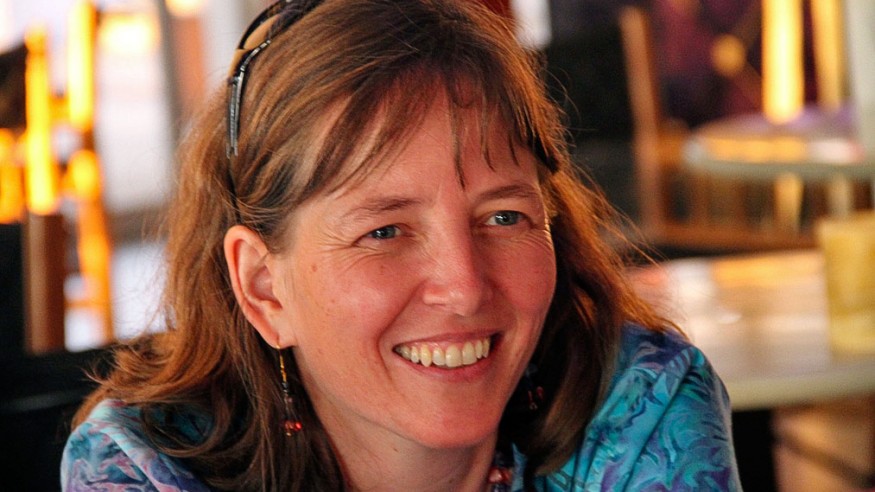
Feeding the World
Florence Reed. (Photo by Claire Paniccia ’13)
Thirteen years ago, Florence Reed started a small organization out of her parents’ spare bedroom, which grew into what is now Sustainable Harvest International. Originally, the idea was to save what was left of the tropical rainforests, but it has grown from that into an organization that does so much more. And on Monday, September 17, she came to Ohio Wesleyan for the first lecture of the 2012 Sagan National Colloquium.
Everyone knows that deforestation of the rainforests is pandemic and bad. But not everyone knows how to combat it. Much of this deforestation is caused by the traditional farming techniques of the local people, known as the Slash and Burn technique. This technique was not so crippling to the forests when utilized by small indigenous populations, but today high populations, Reed says, force the farmers to return to the previously burned land before it has had time to fully regenerate. It’s less effective this way, but they simply don’t know how to feed their families.
This is where SHI comes in. Sustainable Harvest International teaches sustainable farming techniques to rural poor in Belize, Nicaragua, Honduras, and Panama. Families are trained by local field trainers for five years. “Personally, I feel sustainable and organic processes are the only way in the long term to feed the world,” Reed says. This is what the program does.
Not only does it teach how to grow staple cash crops sustainably, but the program also helps families to diversify their farms. This means a bad market for corn grain, for example, won’t debilitate the family’s income. It also gives the families healthier diets whether they can afford to buy food or not.
Reed told of one woman trained by Sustainable Harvest who said to Reed, “I’ve come to think of myself as an important woman.” She said that because of what Sustainable Harvest had taught her, she felt she was important to her family, to her community, and to the planet she was helping to conserve. This is exactly the goal of Sustainable Harvest, Reed says. Ecological stability and economical stability.
“At the heart of all SHI’s work is the idea that healthy soils produce healthy crops which then produce healthy families which then produce healthy communities which then produce a healthy planet. But it all starts with the soil,” says Reed. Since its beginnings, Sustainable Harvest International trained 903 families in more than 100 communities in four countries. It has planted 3.1 million trees, converted 14,000 acres to sustainable farming, and saved 70,000 acres of forest from burning.
Growing from Reed’s parents’ spare bedroom, it seems that Sustainable Harvest may be a solution to some of the world’s most pressing food- and health-related problems.
